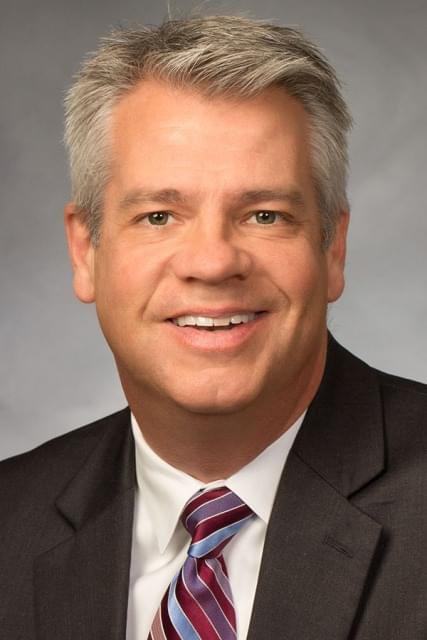
Illinois Farm Bureau National Legislative Director Adam Nielsen said the bureau doesn’t have a position on the work requirement for those who use food stamps, and it’s frustrating that it’s one of the sticking points. (Photo Courtesy Illinois Farm Bureau Website)
By Illinois Radio Network/Greg Bishop
The Illinois Farm Bureau said it is confident a farm bill will be passed after the November midterm elections. If not, it could be a “nightmare scenario.”
Illinois’ sole congressman on the conference committee working to compromise on a new farm bill says the stricter work requirements for food stamps isn’t the only thing holding up the effort.
U.S. Rep. Rodney Davis, R-Taylorville, is on the conference committee trying to combine the House and Senate versions of an updated farm bill. While the Illinois Farm Bureau doesn’t take a position and some farmers want a standalone farm bill, Davis said the work requirement on food stamps isn’t the only issue holding things up.
“The Democrats want us to think it is,” Davis said. “Democrats in the Senate are actually asking us to roll back some regulatory protections and regulatory relief that our farmers asked us for in the House bill.”
Davis spoke to farmers Thursday in Bloomington.
Illinois Farm Bureau National Legislative Director Adam Nielsen said the bureau doesn’t have a position on the work requirement for those who use food stamps, and it’s frustrating that it’s one of the sticking points.
“It’s not a priority for us,” Nielsen said. “Before the farm bill debate started, we had a number of farmers … and nobody asked for work requirements on [Supplemental Nutrition Assistance Program] benefits. But because the SNAP program is a big part of the farm bill and a big part of spending, there’s always going to be an interest in going in there and adjusting spending.”
Nielsen was hopeful lawmakers would come to terms on the differences between the House and Senate versions of the bill by the end of last month. That didn’t happen.
“I think we’re pretty confident that after the midterm, after the lame duck session, Congress will be able to resolve the differences,” Nielsen said.
If not, “that would definitely be a nightmare scenario,” Nielsen said, “because the process would start from scratch.”
Davis said the major farm programs in the bill are done by crop year, not a federal fiscal year, and farmers are not going to see a change in risk management, crop insurance or other baseline programs while a new deal is worked out.
Nielsen said Davis being the only Illinois delegate on the farm bill conference committee is crucial.






